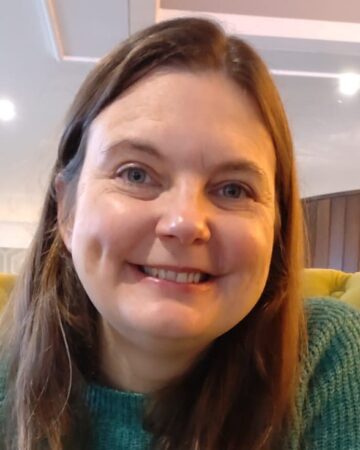Home About Us Our Stories Cathy Freeman-Pates
Cathy Freeman-Pates

Sirona Care and Health
FoNS Person-centred Cultures Development Programme participant Cathy, talks about how the programme has changed the way she works
How did the programme differ from others that you have done?
I felt that it differed from a lot of other courses in many ways:
Firstly, a lot of what I got out of the programme was from the interaction with the other professionals.
Traditional leadership and management courses tend to be very academic and they deliver the theory and you learn it. The learning from this course was participatory; looking at problems with the other people and getting their perspectives helped me understand things a lot more and I think that was more powerful than being talked at and reading articles.
There was also the creative element to it. I am quite a creative person and so I wasn’t fazed by the sticky bits and fiddly bits and pens and glue. Some people were a bit less so, but I got straight in and started making things. And that really speaks to me, it’s something I’m trying to take into my world of work as well.
So the creative and participatory elements of the course were definitely much appreciated from my perspective.
You’ve now changed jobs
I’d been nursing in palliative care for 16 years and was managing a small team of carers. The Person-centred Cultures Development Programme gave me lots of ideas of what might be possible, but I really struggled to put that in place in practice for a number of reasons. Sadly, I couldn’t make it work. It was time to move on.
I’ve now taken a massive leap to a job as a unit manager in a rehab unit where I am the manager of around 50 people! I have more scope and hopefully will be able to implement these ideas in terms of facilitating person-centred care; doing with not doing to!
I wouldn’t have gone for it if I hadn’t done the programme and known that you didn’t have to be perfect; that it’s OK to be authentic, vulnerable, a quiet leader.
And to do things with people; I didn’t need to know how to do it all myself. Happily, I seem to have landed in a place where they accept me being me.
In the interview I talked a lot about person-centred care and I talked about the programme and I talked about how I don’t have the background in rehab, I’ve got the background in palliative care. But actually, palliative care is really just good person-centred care and whether the goals are about where you want to be in the last days of your life or whether the goals are about what you need to do before you can feel safe at home, it’s still person-centred.
It’s early days in this new role but it’s good because I’ve had some meet and greets at different times of day; night shifts, shifts with the healthcare assistants, daytime nurses and the therapy shift and been there with the doctors. I’ve been into the hospital to talk to the community transfer of care team and see what is going on from their perspective. I’ve had lots of shadow days and lots of opportunities to talk to people about what it’s like to work here
Naturally, there was concern that I would come in and change everything. The previous manager had been there for quite a long time and had her own style and ways of doing things. But a lot of what I’ve learnt from the Person-centred Culture Development Programme is about curious questioning and that it’s important to ask what’s your perspective?
Comments are closed.

